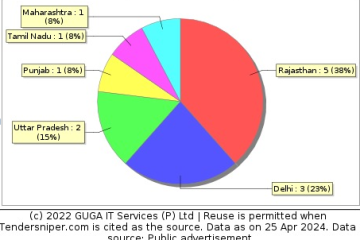In the ever-evolving landscape of e-commerce, Shopify dropshipping continues to undergo transformative changes driven by technological advancements, shifting consumer behaviors, and emerging market trends. As entrepreneurs adapt to meet the demands of a dynamic industry, it’s crucial to stay informed about the latest trends and innovations shaping the future of Shopify dropshipping. In this article, we explore the evolution of Shopify dropshipping, highlighting key trends and innovations that are reshaping the e-commerce landscape.
The Rise of Microbrands and Niche Markets
- Microbrand Revolution: The emergence of microbrands—small, independent companies that focus on niche markets—has reshaped the e-commerce landscape. Shopify dropshipping has enabled entrepreneurs to capitalize on niche markets by offering unique, specialized products tailored to specific customer segments.
- Direct-to-Consumer (DTC) Model: Shopify dropshipping has facilitated the rise of the direct-to-consumer (DTC) model, allowing brands to bypass traditional retail channels and establish direct relationships with customers. By leveraging Shopify’s platform, DTC brands can offer personalized shopping experiences, cultivate brand loyalty, and capture market share in competitive industries.
Sustainability and Ethical Sourcing
- Emphasis on Sustainability: With growing consumer awareness of environmental issues, sustainability has become a key focus for Shopify dropshipping businesses. Entrepreneurs are prioritizing eco-friendly practices, ethical sourcing, and transparent supply chains to meet the demands of environmentally conscious consumers and differentiate their brands in the market.
- Circular Economy Initiatives: Shopify dropshipping businesses are increasingly embracing circular economy initiatives, such as product recycling, upcycling, and waste reduction. By adopting sustainable practices throughout the product lifecycle, brands can minimize their environmental impact and appeal to eco-conscious consumers.
Integration of Augmented Reality (AR) and Virtual Reality (VR)
- Enhanced Product Visualization: The integration of augmented reality (AR) and virtual reality (VR) technologies into Shopify dropshipping stores is revolutionizing the way customers shop online. By enabling virtual product try-on experiences, interactive product tours, and immersive shopping environments, AR and VR technologies enhance engagement, reduce product returns, and drive conversion rates.
- Personalized Shopping Experiences: AR and VR technologies enable Shopify dropshipping businesses to offer personalized shopping experiences that cater to individual preferences and tastes. By allowing customers to visualize products in their own space and customize their shopping journey, brands can increase customer satisfaction and foster brand loyalty.
Artificial Intelligence (AI) and Machine Learning
- Predictive Analytics: Shopify dropshipping businesses are leveraging artificial intelligence (AI) and machine learning algorithms to analyze customer data, predict purchasing behavior, and personalize marketing campaigns. By harnessing the power of predictive analytics, brands can optimize marketing spend, increase conversion rates, and drive revenue growth.
- Chatbots and Virtual Assistants: AI-powered chatbots and virtual assistants are transforming customer service in Shopify dropshipping stores. These intelligent chatbots can handle customer inquiries, provide product recommendations, and assist with order tracking, providing round-the-clock support and enhancing the overall shopping experience.
Conclusion
The evolution of Shopify dropshipping is characterized by a convergence of technological innovation, changing consumer preferences, and a shifting competitive landscape. As entrepreneurs navigate these dynamic trends and innovations, staying informed and adaptable is essential for success in the rapidly evolving e-commerce industry. By embracing microbranding, sustainability initiatives, AR/VR integration, and Sumosearch AI-powered solutions, Shopify dropshipping businesses can position themselves for long-term growth and competitiveness in the ever-changing e-commerce landscape.



